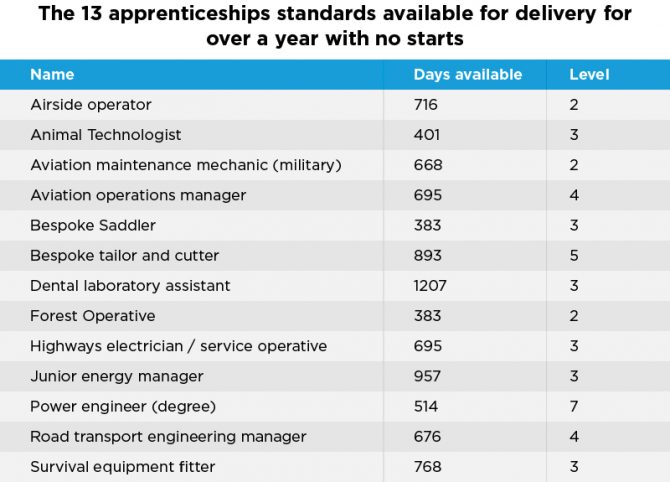Conflicts of interest are the “biggest risk” to the effectiveness of external quality assurance, the Institute for Apprenticeships has admitted.
Employer groups developing apprenticeship standards name the organisation to deliver this service, but so far just a quarter – 10 out of 40 – of those chosen have been approved by the IfA.
The body’s concerns were revealed in newly-published minutes from January and March meetings of its quality assurance committee, which is responsible for approving organisations to check apprenticeship assessments.
These minutes, along with those from the IfA’s approval and funding, and audit and risk assurance committees, have been published for the first time following a Freedom of Information request by FE Week.
Conflicts of interest are “one of the main reasons for rejecting potential EQA providers” and there is an “ongoing need to manage” these conflicts, according to the minutes from a March 14 meeting.
“It is also one of the biggest risks to the effectiveness of EQA and the reputation of the institute,” the minutes warned.
FE Week previously reported in March that the IfA had “concerns” about conflicts of interest in its new EQA model, according to minutes from a December 2017 quality assurance committee meeting obtained via a previous FOI request.
At the time the committee agreed to develop “a register of interest for EQA providers” which “should list any declared interests that EQA providers have and how these are to be mitigated”.
According to the March minutes, the committee now plans to “mitigate conflicts” through this register of interests, “conditions of recognition” and ongoing management.
The assessment and quality team at the IfA had also been asked to “draw up a decision tree” to outline conflicts and how they are being handled.
“The committee agreed it needs to ensure that the relevant checks and balances are in place for managing conflicts of interest for EQA providers,” the minutes noted.
Employer groups developing new apprenticeship standards can choose one of four options for externally quality-assuring the final exams.
These are an employer-led approach, a professional body, Ofqual or the IfA itself.
Two potential EQA providers had their applications deferred at the March meeting “on the basis that there were clear conflicts of interest with them”, while one provider was approved.
A further three providers had their applications rejected outright at a meeting on January 23 as there were “clear conflicts”, while just one was approved.
One of the three rejected organisations was on the register of end-point assessment organisations, and the other two were also EPA organisations, the minutes said.
At the December meeting one organisation was rejected.
None of the rejected or deferred organisations are named in the minutes.
So far, just 10 of the 40 employer-led or professional body EQA providers named in assessment plans have been approved – although it’s not clear how many of the remaining 30 have been rejected.
The IfA has committed to “proactively” publish the minutes on its website, and that they would be produced in an “open and transparent manner”.
However, not all minutes appear to have been published, and some are heavily redacted. The IfA has yet to say why this is the case.

